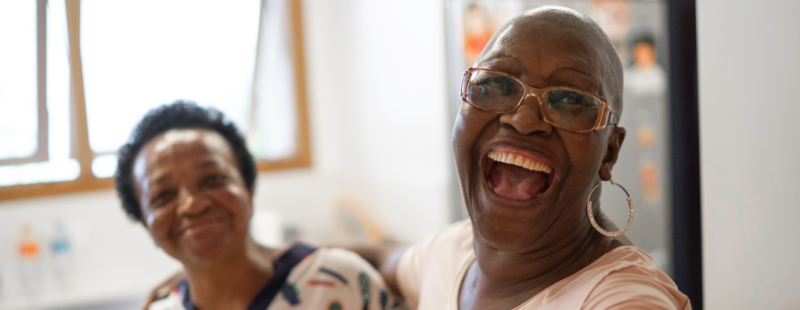If we’re to understand the causes of loneliness among older people, we have to challenge misconceptions and stereotypes. When it comes to older people from black and minority ethnic (BME) groups, there’s often an assumption they live in ‘traditional’ family structures, with young relations looking after or living with older generations. Though there is some truth in this, the fact remains that for many older BME people, life in later age can be a lonely experience. The following guest blog by Omar Khan, Director of the Runneymede Trust, has been written to complement our new collection of essays, Alone in the Crowd: Loneliness and diversity.
Hidden loneliness
Research indicates a problem of ‘hidden loneliness’ among older BME people – because even when you live in a busy household, it’s possible to feel alone.
For example, even when BME people have large family networks, they’re less likely to take part in activities they enjoy. For those born overseas, loneliness is a significant problem, with 24%-50% of those born in China, Africa, the Caribbean and Pakistan reporting loneliness.
Understanding the problem
Poverty is an important factor in the problem of loneliness among older BME people. Shockingly, nearly half of Pakistani and Bangladeshi pensioners are poor, as are 30% of Indian, Caribbean and Chinese pensioners. There is a correlation between poverty and loneliness, as lack of resources makes travel and socialising difficult.
Even within the home there can be language barriers. Older people speaking English as a second language may find communicating with British-born relations difficult – particularly as old age may bring dementia.
For those born overseas, cultural barriers can arise from both sides: they may feel disconnected from their country of birth, but not comfortable in the British culture their children were born into.
Loneliness is not inevitable
It’s hardly surprising that 36% of older BME people responding to one survey said they’d like more companionship and contact with others. But how can we make sure BME people do not face old age feeling alone?
If government is to tackle loneliness in BME older people, a key task is to improve language service provision, helping to make sure everyone can understand the services available to them. Care homes must also make sure they are sensitive to the needs and preferences of BME people.
Building better links with BME organisations who may lack the resources to develop their provision can be very successful, helping meet a high demand for culturally competent services.
Activities designed to bring older people together can make sure they are able to both accommodate and celebrate the needs of BME people, making sure they and the community benefit from their unique experiences and history.
Understanding why older BME people may feel alone is a complex task – but it is possible, and is the first step in making sure loneliness is not inevitable in old age.





No comments on this article yet. Please feel free to submit a comment below.
By submitting a comment you grant Campaign to End Loneliness a perpetual license to reproduce your words and name/web site in attribution. Inappropriate and irrelevant comments will be removed at an admin's discretion. Your email is used for verification purposes only, it will never be shared.